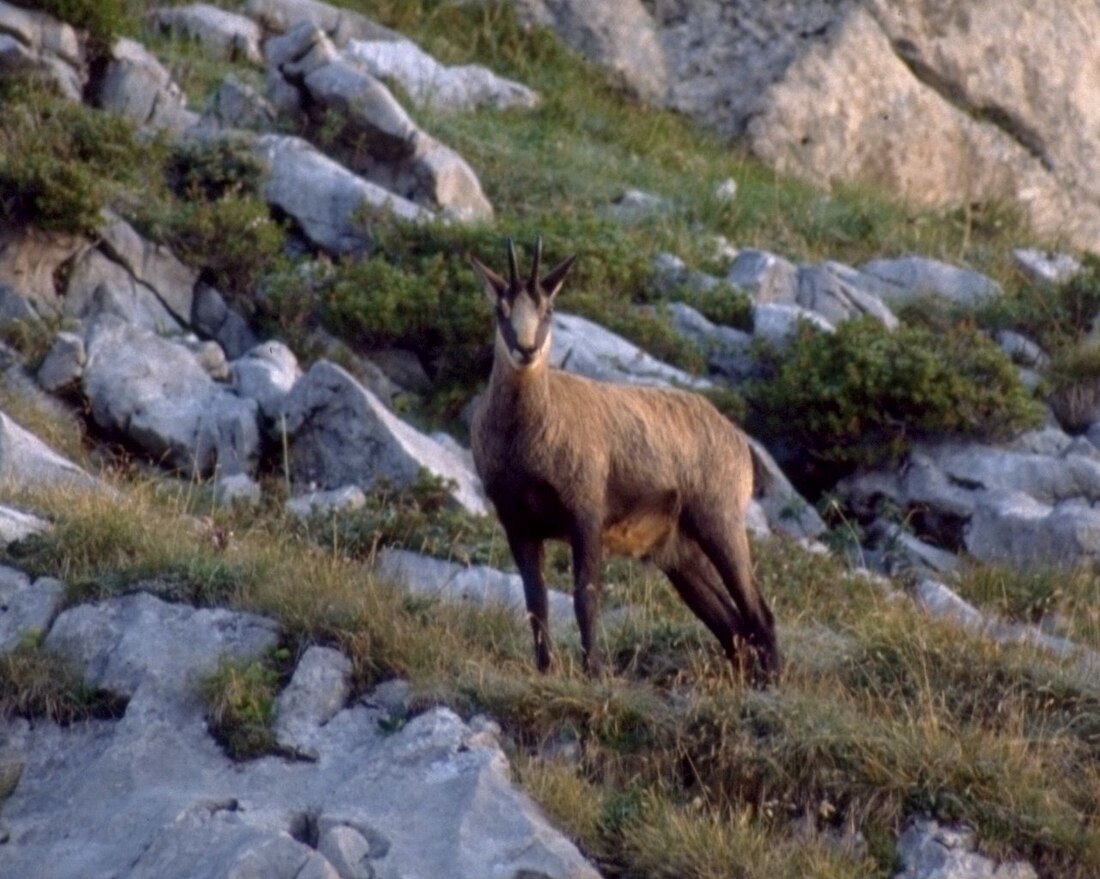Top Qs
Timeline
Chat
Perspective
Rupicapra
Genus of mammals From Wikipedia, the free encyclopedia
Remove ads
Rupicapra is a genus of two species of goat-antelope called chamois. They belong to the bovine family of hoofed mammals, the Bovidae.
Remove ads
Taxonomy
Two extant species are accepted.[1]
Remove ads
Description
Both male and female have hook-shaped horns that slightly curl backwards and grow little by little each year, never falling off. Their coats are light brown and short-haired in the summer, and darker and longer-haired in the winter; the head has two pale creamy-white patches, from the nose to between the horns, and from the chin round the cheeks and behind the eyes to just below the ears; the pale patches are separated by dark stripes from the mouth up through the eye to the back of the head. There are also two darker bands on their flanks.
Remove ads
Behaviour
In the summer, the Apennine chamois prefers rock faces and pasture lands at heights above 1,700 m (5,600 ft) for its habitat, and in the winter it prefers to retreat to the woods below. The diet consists of grasses, leaves, buds, shoots and fungi. Adult males prefer a solitary life, only approaching females during the mating season. Groups consist only of females, young males, and "kids". Females give birth to only one kid after a gestation period of 23 to 24 weeks.[2]
Conservation
A 2014 study by Durham University discovered that these goats are shrinking in size due to global warming and climatic changes.[3]
References
External links
Wikiwand - on
Seamless Wikipedia browsing. On steroids.
Remove ads




